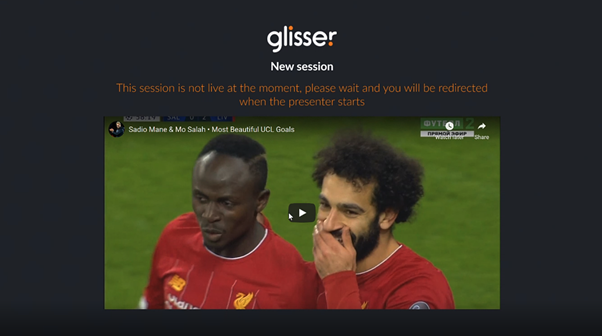The fear that two years of virtual necessity could pre-empt greatly reduced room capacities, or even the closure of some larger event venues across the UK, has all but disappeared according to anecdotal feedback since the Buyers Network Show earlier this year. Instead, venues are in a buoyed and rejuvenated mood.
The BNC exhibition, which took place at The Brewery in London on 6 April, brought together more than 100 venues and suppliers and provided an opportunity to test the temperature of the UK venue landscape as it welcomes back meetings, conferences, exhibitions and events.
Anecdotally, venue sales teams were reporting an insatiable appetite for getting back to face-to-face in-room event activity, with around 90% telling us they are fully booked for the coming months.
Although this is heartening and positive news for an industry that faced a desperately uncertain future throughout 2020 and much of 2021, it’s those venues that have invested in facilitating not just the safe return to live, but also in maintaining and growing online audiences, which now face the brightest period of business growth.
A renewed appetite for ‘live’ is being coupled with a re-evaluation of event design, as planners focus on what value virtual brought to their audiences, and how that value can be preserved and integrated into year-round event programmes through technology.
Event organisers unable to make budgets stretch to bespoke, and often complex hybrid set-ups, are now looking to venues to offer affordable technology packages, featuring mobile functionality and on-site support.
Planners want the greater audience outreach that virtual provides, while lowering the event’s overall carbon footprint, offering choice on how to engage with content, and providing additional showcasing opportunities for sponsors and exhibitors online.
If a planner’s over-arching event objective is learning and development, they’re looking to venues as spaces to inspire, host role-play exercises and provide hands-on demonstrations. A larger proportion of the content can therefore be delivered online for increased reach, on-demand access and sponsor visibility that goes well beyond the duration of the event.
The same is true for networking objectives. People are eager to get back into venues as that’s where those serendipitous moments occur, which could result in a new business contact or contract even.
Online, planners can grow communities, provide exclusive access to speakers or, facilitate one-on-one virtual meetings between suppliers and leads that have already been qualified in a platform environment without distraction. But it’s the conference or exhibition show-floor where the unexpected can happen and discoveries are made.
Planning a hybrid event, but don’t know where to start? Download our hybrid 'run of show' template - a tried and tested example that you can put into action today.
All this is why venues able to complement the magic of face-to-face with those digital platform components that have already been shown to evolve the attendee experience, are now competing for business in an evolved and reimagined event world.
Nobody wants to see a return to pre-Covid venue formats featuring excess food and beverage waste, sponsors restricted to limited branding opportunities, plus a lack of data and understanding of how event participants engage.
By venues complementing in-person event activity with digital components that enrich and enhance the attendee experience, the definition of what constitutes a hybrid event is evolving for the better.
An additional draw of hybrid events is their lower environmental footprint. Industry trends suggest that sustainability is increasingly a key concern for event organisers, and venues offering sustainable event solutions are well-placed to cater for these demands. Leading venue marketplace, Hire Space, have created a guide for venues on transitioning to more sustainable practices, where they highlight adopting hybrid technology as a leap in the right direction
With a reduced need for delegate and supplier transport, as well as less food, water, and energy being consumed on the day, events with a virtual element can have a significantly lower footprint than events held entirely in person. In fact, according to a study published in Nature Communications, staging a conference in a hybrid format (with a 50/50 in-person and virtual attendee split) can reduce the event’s footprint by up to two-thirds.
As the conversation around events and environmental footprints evolves, hybrid events are being put forward as a way to mitigate the impact of the industry. Venues looking to stay ahead of the curve will need to have hybrid technology on their radar more than ever to meet the demands of event organisers.
Try our event carbon calculator today to see how much carbon you could save by moving just 25% of your attendees online.
Earlier this year, award-winning event and conference venue, 30 Euston Square invested in its tech infrastructure to create ‘True Hybrid Solutions’ –
a new hybrid meeting and events package in partnership with Glisser.
Engagement tools include Q&As, polling and voting systems, alongside an unlimited number of remote delegates, remote speakers and virtual breakout rooms for participants to meet and interact.
Not only can speakers and participants interact directly, but attendees can access presentation slides, write notes, add bookmarks and download content during and after the event. All events remain secure with protocols in place for privacy, while content is streamed on an encrypted point-to-point and password protected.
General Manager, 30 Euston Square, Luiz Mazzari says: “True hybrid experiences often fall outside of client budgets and, as a result, organisers end up compromising on quality and experience. Our package, as well as being state-of-the-art, costs on average 60% less than a like-for-like hired solution. It also offers unlimited remote attendee capacity at no extra charge, making it ideal for larger events that had been previously restricted by physical capacity.”
The True Hybrid Solution package is now available at 30 Euston Square, and includes pre-production services, a hybrid production manager and dedicated support on the day of the event.
Editor's note: This blog was originally published in May 2022 and has been updated with insights on sustainable event solutions.
If you’re a venue looking for a solution that complements the return to live with the very best of what virtual event platforms have to offer, contact Glisser and start a partnership that will elevate your offer today.






-1.png)